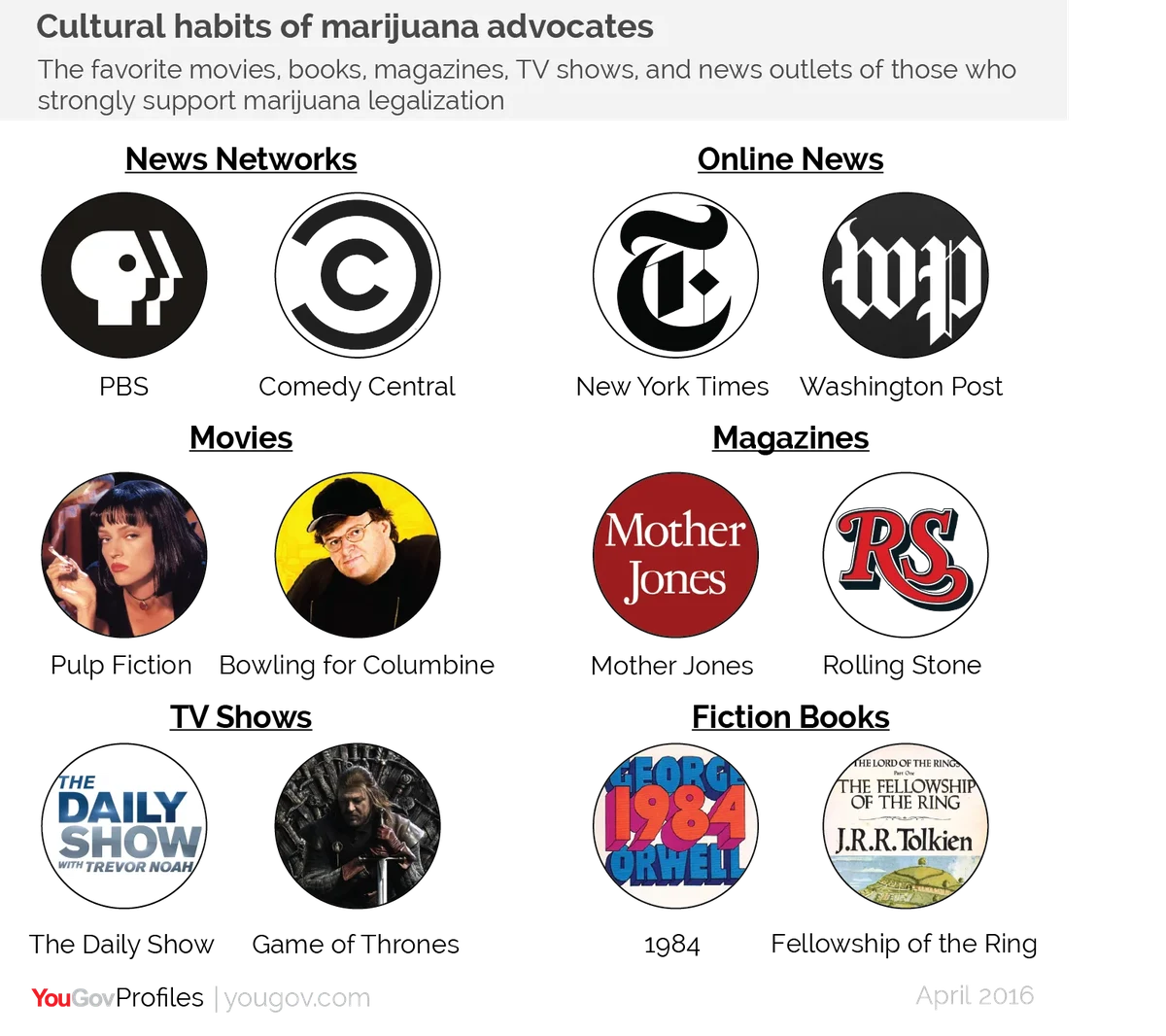Elizabeth Warren, Game of Thrones, and 1984 — new data from YouGov Profiles reveals the most popular people, programs, and publications among advocates of marijuana legalization
As America continues to inch toward legalizing marijuana, 4/20 — or National Pot Smokers' day — is getting a higher and higher profile. A recent YouGov survey found that 52% of Americans now support ending the prohibition against weed.
So, what do we know about the mindset of those clamoring for legal weed (and those most likely to partake in 4/20's traditions)? Which cultural touchpoints shape their worldview, and which public figures do they admire most? Who are the real heroes of the weed movement?
Thanks to YouGov Profiles, our vast dataset of long-tail profile data on over 200,000 Americans, we can now move from speculation to hard science. Analyzing the profiles of over 12,000 individuals who strongly support legalizing marijuana for personal use, we now know that this group disproportionately looks to PBS and Comedy Central as trusted sources of news. Perhaps it's no surprise, then, that The Daily Show, Jon Stewart, and Stephen Colbert all receive high praise. Proponents of pot also like the left-leaning Mother Jones magazine, and seem to have a thing for the fantasy genre, as demonstrated by their penchent for HBO's Game of Thrones and Tolkien's epic novel Fellowship of the Ring.

When it comes to their favorite celebrities and cultural icons, weed advocates tend to favor comedians who double as social critics. The list includes not only the aformentioned Stewart and Colbert, but also George Carlin, Louis C.K., and Amy Schumer. On the political side it's Bernie Sanders, Elizabeth Warren, Eleanor Roosevelt, and Martin Luther King, Jr. who are most admired. George Orwell and his dystopian classic 1984 also appear to be big influences.
With change on the horizon, major banks are beginning to investigate how they can cash in on the booming marijuana industry, which sold a reported $5.4 billion of legal product in 2015, up from $4.6 billion in 2014. Likewise, the Atlantic notes that marketers are busy thinking up ways to sell the stigmatized substance to both lifelong users and curious newcomers — a challenge not much different from the initial hurdles faced by beer and cigarettes in their early days of mass-production.









